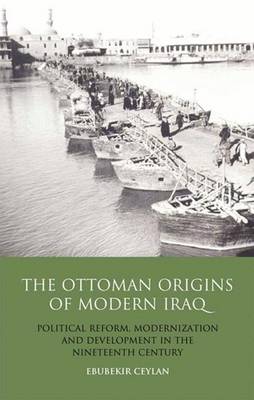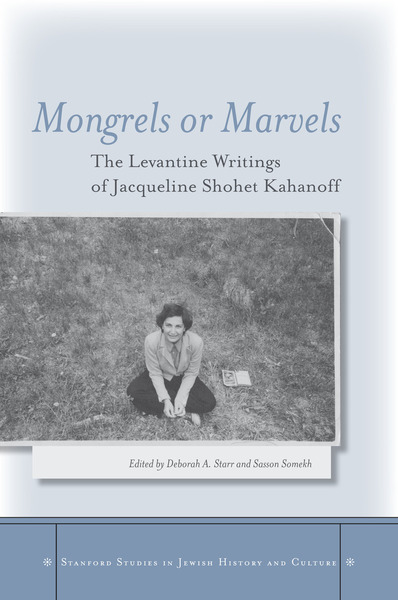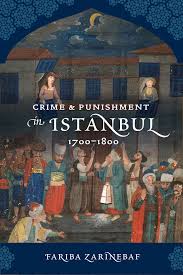-
Add to cartQuick view
Musicians between the Hegemonies
Inbal Perlson
$5.00Free!Add to cartQuick view -
Add to cartQuick view
Musicians between the Hegemonies: A Response
Martin Stokes
$5.00Free!Add to cartQuick view -
Add to cartQuick view
The Challenge of Administering Justice to an Islamic Minority living in a Non-Muslim State: the Shari‘a Courts in Israel
Free!Iyad Zahalka
Add to cartQuick view -
Add to cartQuick view
Review Essay: Minorities and Majorities: The Nation-State and Identitarian Politics in the Modern Levant
Free!Kais M. Firro, Metamorphosis of the Nation (al-Umma): The Rise of Arabism and Minorities in Syria and Lebanon, 1850–1940. Brighton; Portland, OR: Sussex Academic Press, 2009. 201 pp.Benjamin Thomas White, The Emergence of Minorities in the Middle East: The Politics of Community in French Mandate Syria. Edinburgh: Edinburgh University Press, 2011. 239 pp.Add to cartQuick view -
Add to cartQuick view
We Are Fragments of Rhymes: The Poetry of Erez Biton between East and West
Free!The poetry of Erez Biton, as it found expression in his first book Minha Marokait (1967), was a landmark in Hebrew literature. The starting point for the author—the founding father of Mizrahi poetry in Israel—is his immigration to Israel from North Africa. The article follows the literary structure of the trauma of immigration in Biton’s poetry. Biton contests the attempts at entrapment and domestication that are part of the trauma of immigration and develops a critical stance toward the Ashkenazi hegemony. In this way he develops a poetic voice that opposes the Israeli sovereign, who relates to Biton as an Arab-Jew excluded from the sovereign’s narrative. For Biton’s testimony about his trauma to be accepted, he needed to crack the walls erected by the ruling universal subject of Israeli sovereignty to maintain stability of identity in the face of Biton’s trauma as a Mizrahi immigrant. These walls, which removed the “Arabness” of the Mizrahi immigrant, did not assign a place for him and thus did not allow the testimony about his trauma to be heard. The method Biton proposes to the Mizrahi for simultaneously retaining and not retaining the hyphen in “Arab-Jewish” is to carry on a pretense and use defiant language. Biton is of the opinion that the failure of the Mizrahi to penetrate the walls of Israeli sovereignty’s poetry is predictable and brought on by the attempt to form a cohesive identity. However, he suggests turning this failure into an advantage by using pretense.This slide toward the “other,” this redundancy at the core of the process of mimicking the Ashkenazi, creates a critical effect. Biton is in fact suggesting that his readers—you, the Mizrahi—be like the Ashkenazi, but not completely like him; in this way you will undermine the Ashkenazi’s subjective self as well as his authority. This rejection provides the time required to cope with the trauma of immigration. The ambivalence of the mimicry that Homi Bhabha writes of not only disrupts the discourse but also transforms it into complete uncertainty, fixing the colonial, sovereign, and oppressing subject as only a partial presence. In other words, it undermines the sovereign subject, and does not give it authority.
Erez Biton recreates the Mizrahi stereotype, thus challenging the coherence of the stereotype and the coherence of the identity of the oppressor who uses this stereotype—the same stereotype Biton uses to undermine the oppressor. Biton, who suggests mimicking the Ashkenazi, is in effect also mimicking the Mizrahi and in doing so reveals the mimicking nature of his poetry—a structure with which he expresses the absence of a stable source for and the contingency of all ethnic identities in Israel.Add to cartQuick view -
Add to cartQuick view
Ebubekir Ceylan, The Ottoman Origins of Modern Iraq: Political Reform, Modernization and Development in the Nineteenth-Century Middle East. Library of Ottoman Studies, London and New York: I. B. Tauris, 2011, 297 pp.
Ebubekir Ceylan, The Ottoman Origins of Modern Iraq: Political Reform, Modernization and Development in the Nineteenth-Century Middle East. Library of Ottoman Studies, London and New York: I. B. Tauris, 2011, 297 pp.
$5.00Free!Add to cartQuick view -
Add to cartQuick view
The Burden of Self-Representation: Reflections on Shhur and Its Legacy for Contemporary Mizrahi Films in Israel
Free!In hindsight, Hannah Azulai-Hasfari’s 1995 semi-autobiographical film Shḥur heralded the rise of new Mizrahi cinema—a corpus of contemporary films that features Mizrahi traditions, experiences, and struggle and brings Mizrahi subjectivity to the fore. Given the often uncomplimentary on-screen depiction of the Mizrahi during the formative years of Israeli cinema and the scant Mizrahi self-representation through the early 1990s, one could anticipate the public and scholarly interest in and heightened sensitivity around the elaborate portrayal of the Moroccan family and customs in Azulai-Hasfari’s film. This essay explores the particular modalities of this burden of representation and the strategies the filmmaker employed to unburden herself. Whereas the burden of representation is often situated in the realm of production (the particular directorial choices as they pertain to narrative, cast, space, etc. in the making of a film), the analysis of Shḥur in this essay opts to focus on the modalities along which the burden of representation materializes in the realm of reception. This essay’s final section adumbrates the film’s particular construction of a Mizrahi space as well as its use of languages as devices that left their marks in feature, documentary, short, and experimental Mizrahi films for years afterward. In turn, this more recent crop of Mizrahi films has modified the parameters of the burden of Mizrahi self-representation.
Add to cartQuick view -
Add to cartQuick view
Deborah A. Starr and Sasson Somekh, eds., Mongrels or Marvels: The Levantine Writings of Jacqueline Shohet Kahanoff. Stanford: Stanford University Press, 2011. 304 pp.
Deborah A. Starr and Sasson Somekh, eds., Mongrels or Marvels: The Levantine Writings of Jacqueline Shohet Kahanoff. Stanford: Stanford University Press, 2011. 304 pp.
$5.00Free!Add to cartQuick view -
Add to cartQuick view
Unrest at the Gates of Aleppo: British Perspectives on the Bedouin Challenge to Public Security in Northern Syria, 1848-1913
Free!The political situation in the eastern Arab world during the colonial period was subject not only to the interests of the great powers of East and West but also to disturbances caused by tribal Arabs who found refuge in the desert. Although there has been much research on bedouin of both the nomadic and the sedentary tribes of Syria and its hinterland—mostly drawing on ethnographic aspects—little has been written on the tribes as a challenge to political stability. Aleppo is of special interest since it was an important city close to the desert frontier and was under permanent threat of bedouin raids. The city also was and still is a place of sectarian diversity, second only to Beirut, and all too often the Christian population was wedged between the Ottoman government and nomadic tribes. Dealing with the bedouin thus touches all aspects of an eroding Ottoman power that affected Levantine urban life and sectarian coexistence. This paper draws on previously unpublished archival sources of the British Consulate in Aleppo.
Add to cartQuick view -
Add to cartQuick view
Being Muslim and European Without Contradiction—Myth or Reality?
Free!The article reviews a critique of European modernity through the eyes of Bassam Tibi, a European Muslim sociologist. Tibi’s discursive analysis presents a detailed description of how an Islamic pluralism addresses the conceptual, philosophical, cultural, social, and political interpretations of Islam in a European context. His Islamic pluralism suggests the ways in which a secular interpretation of Islam can influence religion-state relations in Europe. Exploring the tensions resulting from being both Muslim and European, Tibi proposes that Muslims in Europe avidly maintain some basis of Islam within their identity, even if they adapt that interpretation to make it compatible with European norms and values. His perspectives are juxtaposed with Muslim intellectual opposition to a European Islamic pluralism that offers a basis for Islamic diversity in Europe. The article concludes that even Tibi’s moderate interpretation of Islam does not fully eliminate the inherent contradiction involved in being both Muslim and European, although he does suggest a means of bridging cross-cultural tensions.
Add to cartQuick view -
Add to cartQuick view
Fariba Zarinebaf, Crime and Punishment in Istanbul, 1700–1800. Berkeley, University of California Press, 2010. 304 pp.
Fariba Zarinebaf, Crime and Punishment in Istanbul, 1700–1800. Berkeley, University of California Press, 2010. 304 pp.
$5.00Free!Add to cartQuick view
- Home
- About JLS
- Issues
- Vol. 9 No. 1 | Summer 2019
- Vol 8 No 2 Winter 2018
- Vol. 8, No. 1: Summer 2018
- Vol. 7, No. 2: Winter 2017
- Vol. 7, 1: Summer 2017
- Vol. 6, Summer/Winter 2016
- Vol. 5, No. 2 Winter 2015
- Vol. 5, No. 1 Summer 2015
- Vol. 4, No. 2 Winter 2014
- Vol. 4, No. 1 Summer 2014
- Vol. 3, No. 2 Winter 2013
- Vol. 3, No. 1 Summer 2013
- Vol. 2, No. 2 Winter 2012
- Vol. 2, No. 1 Summer 2012
- Vol. 1, No. 2 Winter 2011
- Vol. 1, No. 1 Summer 2011
- Blog
- dock-uments
- Subscribe
- Submit
- Contact




